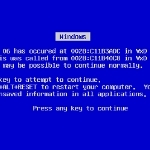
Are you downloading from trusted sources?
By Windows Talk
“Hackers are attacking PCs with Internet access every 39 seconds” – James Clark School of Engineering at the University of Maryland
Based on recent poll results, it’s pretty clear that the majority of voters, that is, 58% of you wait for feedback from trusted sources before you update your browser. But how do you decide if a “trusted source” is to be trusted? What should you look for?
How to Tell If you’re Downloading from a Trusted Source – A Couple of Ways to Know
1) Make sure that the Web site is legitimate and reputable.
Verify that an anti-virus program has checked the files on the download site. If you have any doubts, don’t download the file at all.
If you download software from the Internet, be especially vigilant of free software, which often carries adware or other potentially unwanted content along with it. Always read the privacy policies and end-user license agreements (EULAs) for software you install, regardless of the source.
Be especially wary of:
*Screensavers
*Games
*Browser add-ons
*Peer-to-peer (P2P) clients & torrent sites
*Any downloads claiming to be “cracked” or free versions of expensive applications, such as Adobe® PhotoShop® or Microsoft® Office.
Remember, if it sounds too good to be true, it probably is!
This excerpt is shared with permission from Windows Talk.




